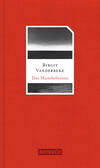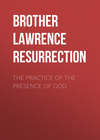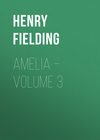Kitabı oku: «History of Tom Jones, a Foundling», sayfa 71
Mrs Waters with great pleasantry ridiculed all this, as the effects of low spirits and confinement. She repeated some witticisms about the devil when he was sick, and told him, “She doubted not but shortly to see him at liberty, and as lively a fellow as ever; and then,” says she, “I don’t question but your conscience will be safely delivered of all these qualms that it is now so sick in breeding.”
Many more things of this kind she uttered, some of which it would do her no great honour, in the opinion of some readers, to remember; nor are we quite certain but that the answers made by Jones would be treated with ridicule by others. We shall therefore suppress the rest of this conversation, and only observe that it ended at last with perfect innocence, and much more to the satisfaction of Jones than of the lady; for the former was greatly transported with the news she had brought him; but the latter was not altogether so pleased with the penitential behaviour of a man whom she had, at her first interview, conceived a very different opinion of from what she now entertained of him.
Thus the melancholy occasioned by the report of Mr Nightingale was pretty well effaced; but the dejection into which Mrs Miller had thrown him still continued. The account she gave so well tallied with the words of Sophia herself in her letter, that he made not the least doubt but that she had disclosed his letter to her aunt, and had taken a fixed resolution to abandon him. The torments this thought gave him were to be equalled only by a piece of news which fortune had yet in store for him, and which we shall communicate in the second chapter of the ensuing book.
BOOK XVIII.
CONTAINING ABOUT SIX DAYS
Chapter i. – A farewel to the reader
We are now, reader, arrived at the last stage of our long journey. As we have, therefore, travelled together through so many pages, let us behave to one another like fellow-travellers in a stage coach, who have passed several days in the company of each other; and who, notwithstanding any bickerings or little animosities which may have occurred on the road, generally make all up at last, and mount, for the last time, into their vehicle with chearfulness and good humour; since after this one stage, it may possibly happen to us, as it commonly happens to them, never to meet more.
As I have here taken up this simile, give me leave to carry it a little farther. I intend, then, in this last book, to imitate the good company I have mentioned in their last journey. Now, it is well known that all jokes and raillery are at this time laid aside; whatever characters any of the passengers have for the jest-sake personated on the road are now thrown off, and the conversation is usually plain and serious.
In the same manner, if I have now and then, in the course of this work, indulged any pleasantry for thy entertainment, I shall here lay it down. The variety of matter, indeed, which I shall be obliged to cram into this book, will afford no room for any of those ludicrous observations which I have elsewhere made, and which may sometimes, perhaps, have prevented thee from taking a nap when it was beginning to steal upon thee. In this last book thou wilt find nothing (or at most very little) of that nature. All will be plain narrative only; and, indeed, when thou hast perused the many great events which this book will produce, thou wilt think the number of pages contained in it scarce sufficient to tell the story.
And now, my friend, I take this opportunity (as I shall have no other) of heartily wishing thee well. If I have been an entertaining companion to thee, I promise thee it is what I have desired. If in anything I have offended, it was really without any intention. Some things, perhaps, here said, may have hit thee or thy friends; but I do most solemnly declare they were not pointed at thee or them. I question not but thou hast been told, among other stories of me, that thou wast to travel with a very scurrilous fellow; but whoever told thee so did me an injury. No man detests and despises scurrility more than myself; nor hath any man more reason; for none hath ever been treated with more; and what is a very severe fate, I have had some of the abusive writings of those very men fathered upon me, who, in other of their works, have abused me themselves with the utmost virulence.
All these works, however, I am well convinced, will be dead long before this page shall offer itself to thy perusal; for however short the period may be of my own performances, they will most probably outlive their own infirm author, and the weakly productions of his abusive contemporaries.
Chapter ii. – Containing a very tragical incident
While Jones was employed in those unpleasant meditations, with which we left him tormenting himself, Partridge came stumbling into the room with his face paler than ashes, his eyes fixed in his head, his hair standing an end, and every limb trembling. In short, he looked as he would have done had he seen a spectre, or had he, indeed, been a spectre himself.
Jones, who was little subject to fear, could not avoid being somewhat shocked at this sudden appearance. He did, indeed, himself change colour, and his voice a little faultered while he asked him, What was the matter?
“I hope, sir,” said Partridge, “you will not be angry with me. Indeed I did not listen, but I was obliged to stay in the outward room. I am sure I wish I had been a hundred miles off, rather than have heard what I have heard.” “Why, what is the matter?” said Jones. “The matter, sir? O good Heaven!” answered Partridge, “was that woman who is just gone out the woman who was with you at Upton?” “She was, Partridge,” cried Jones. “And did you really, sir, go to bed with that woman?” said he, trembling. – “I am afraid what past between us is no secret,” said Jones. – “Nay, but pray, sir, for Heaven’s sake, sir, answer me,” cries Partridge. “You know I did,” cries Jones. “Why then, the Lord have mercy upon your soul, and forgive you,” cries Partridge; “but as sure as I stand here alive, you have been a-bed with your own mother.”
Upon these words Jones became in a moment a greater picture of horror than Partridge himself. He was, indeed, for some time struck dumb with amazement, and both stood staring wildly at each other. At last his words found way, and in an interrupted voice he said, “How! how! what’s this you tell me?” “Nay, sir,” cries Partridge, “I have not breath enough left to tell you now, but what I have said is most certainly true. – That woman who now went out is your own mother. How unlucky was it for you, sir, that I did not happen to see her at that time, to have prevented it! Sure the devil himself must have contrived to bring about this wickedness.”
“Sure,” cries Jones, “Fortune will never have done with me till she hath driven me to distraction. But why do I blame Fortune? I am myself the cause of all my misery. All the dreadful mischiefs which have befallen me are the consequences only of my own folly and vice. What thou hast told me, Partridge, hath almost deprived me of my senses! And was Mrs Waters, then – but why do I ask? for thou must certainly know her – If thou hast any affection for me, nay, if thou hast any pity, let me beseech thee to fetch this miserable woman back again to me. O good Heavens! incest – with a mother! To what am I reserved!” He then fell into the most violent and frantic agonies of grief and despair, in which Partridge declared he would not leave him; but at last, having vented the first torrent of passion, he came a little to himself; and then, having acquainted Partridge that he would find this wretched woman in the same house where the wounded gentleman was lodged, he despatched him in quest of her.
If the reader will please to refresh his memory, by turning to the scene at Upton, in the ninth book, he will be apt to admire the many strange accidents which unfortunately prevented any interview between Partridge and Mrs Waters, when she spent a whole day there with Mr Jones. Instances of this kind we may frequently observe in life, where the greatest events are produced by a nice train of little circumstances; and more than one example of this may be discovered by the accurate eye, in this our history.
After a fruitless search of two or three hours, Partridge returned back to his master, without having seen Mrs Waters. Jones, who was in a state of desperation at his delay, was almost raving mad when he brought him his account. He was not long, however, in this condition before he received the following letter:
“SIR,
“Since I left you I have seen a gentleman, from whom I have learned something concerning you which greatly surprizes and affects me; but as I have not at present leisure to communicate a matter of such high importance, you must suspend your curiosity till our next meeting, which shall be the first moment I am able to see you. O, Mr Jones, little did I think, when I past that happy day at Upton, the reflection upon which is like to embitter all my future life, who it was to whom I owed such perfect happiness. Believe me to be ever sincerely your unfortunate
“J. WATERS.”
“P.S. I would have you comfort yourself as much as possible, for Mr Fitzpatrick is in no manner of danger; so that whatever other grievous crimes you may have to repent of, the guilt of blood is not among the number.”
Jones having read the letter, let it drop (for he was unable to hold it, and indeed had scarce the use of any one of his faculties). Partridge took it up, and having received consent by silence, read it likewise; nor had it upon him a less sensible effect. The pencil, and not the pen, should describe the horrors which appeared in both their countenances. While they both remained speechless the turnkey entered the room, and, without taking any notice of what sufficiently discovered itself in the faces of them both, acquainted Jones that a man without desired to speak with him. This person was presently introduced, and was no other than Black George.
As sights of horror were not so usual to George as they were to the turnkey, he instantly saw the great disorder which appeared in the face of Jones. This he imputed to the accident that had happened, which was reported in the very worst light in Mr Western’s family; he concluded, therefore, that the gentleman was dead, and that Mr Jones was in a fair way of coming to a shameful end. A thought which gave him much uneasiness; for George was of a compassionate disposition, and notwithstanding a small breach of friendship which he had been over-tempted to commit, was, in the main, not insensible of the obligations he had formerly received from Mr Jones.
The poor fellow, therefore, scarce refrained from a tear at the present sight. He told Jones he was heartily sorry for his misfortunes, and begged him to consider if he could be of any manner of service. “Perhaps, sir,” said he, “you may want a little matter of money upon this occasion; if you do, sir, what little I have is heartily at your service.”
Jones shook him very heartily by the hand, and gave him many thanks for the kind offer he had made; but answered, “He had not the least want of that kind.” Upon which George began to press his services more eagerly than before. Jones again thanked him, with assurances that he wanted nothing which was in the power of any man living to give. “Come, come, my good master,” answered George, “do not take the matter so much to heart. Things may end better than you imagine; to be sure you an’t the first gentleman who hath killed a man, and yet come off.” “You are wide of the matter, George,” said Partridge, “the gentleman is not dead, nor like to die. Don’t disturb my master, at present, for he is troubled about a matter in which it is not in your power to do him any good.” “You don’t know what I may be able to do, Mr Partridge,” answered George; “if his concern is about my young lady, I have some news to tell my master.” “What do you say, Mr George?” cried Jones. “Hath anything lately happened in which my Sophia is concerned? My Sophia! how dares such a wretch as I mention her so profanely.” “I hope she will be yours yet,” answered George. “Why yes, sir, I have something to tell you about her. Madam Western hath just brought Madam Sophia home, and there hath been a terrible to do. I could not possibly learn the very right of it; but my master he hath been in a vast big passion, and so was Madam Western, and I heard her say, as she went out of doors into her chair, that she would never set her foot in master’s house again. I don’t know what’s the matter, not I, but everything was very quiet when I came out; but Robin, who waited at supper, said he had never seen the squire for a long while in such good humour with young madam; that he kissed her several times, and swore she should be her own mistress, and he never would think of confining her any more. I thought this news would please you, and so I slipped out, though it was so late, to inform you of it.” Mr Jones assured George that it did greatly please him; for though he should never more presume to lift his eyes toward that incomparable creature, nothing could so much relieve his misery as the satisfaction he should always have in hearing of her welfare.
The rest of the conversation which passed at the visit is not important enough to be here related. The reader will, therefore, forgive us this abrupt breaking off, and be pleased to hear how this great good-will of the squire towards his daughter was brought about.
Mrs Western, on her first arrival at her brother’s lodging, began to set forth the great honours and advantages which would accrue to the family by the match with Lord Fellamar, which her niece had absolutely refused; in which refusal, when the squire took the part of his daughter, she fell immediately into the most violent passion, and so irritated and provoked the squire, that neither his patience nor his prudence could bear it any longer; upon which there ensued between them both so warm a bout at altercation, that perhaps the regions of Billingsgate never equalled it. In the heat of this scolding Mrs Western departed, and had consequently no leisure to acquaint her brother with the letter which Sophia received, which might have possibly produced ill effects; but, to say truth, I believe it never once occurred to her memory at this time.
When Mrs Western was gone, Sophia, who had been hitherto silent, as well indeed from necessity as inclination, began to return the compliment which her father had made her, in taking her part against her aunt, by taking his likewise against the lady. This was the first time of her so doing, and it was in the highest degree acceptable to the squire. Again, he remembered that Mr Allworthy had insisted on an entire relinquishment of all violent means; and, indeed, as he made no doubt but that Jones would be hanged, he did not in the least question succeeding with his daughter by fair means; he now, therefore, once more gave a loose to his natural fondness for her, which had such an effect on the dutiful, grateful, tender, and affectionate heart of Sophia, that had her honour, given to Jones, and something else, perhaps, in which he was concerned, been removed, I much doubt whether she would not have sacrificed herself to a man she did not like, to have obliged her father. She promised him she would make it the whole business of her life to oblige him, and would never marry any man against his consent; which brought the old man so near to his highest happiness, that he was resolved to take the other step, and went to bed completely drunk.
Chapter iii. – Allworthy visits old Nightingale; with a strange discovery that he made on that occasion
The morning after these things had happened, Mr Allworthy went, according to his promise, to visit old Nightingale, with whom his authority was so great, that, after having sat with him three hours, he at last prevailed with him to consent to see his son.
Here an accident happened of a very extraordinary kind; one indeed of those strange chances whence very good and grave men have concluded that Providence often interposes in the discovery of the most secret villany, in order to caution men from quitting the paths of honesty, however warily they tread in those of vice.
Mr Allworthy, at his entrance into Mr Nightingale’s, saw Black George; he took no notice of him, nor did Black George imagine he had perceived him.
However, when their conversation on the principal point was over, Allworthy asked Nightingale, Whether he knew one George Seagrim, and upon what business he came to his house? “Yes,” answered Nightingale, “I know him very well, and a most extraordinary fellow he is, who, in these days, hath been able to hoard up £500 from renting a very small estate of £30 a year.” “And is this the story which he hath told you?” cries Allworthy. “Nay, it is true, I promise you,” said Nightingale, “for I have the money now in my own hands, in five bank-bills, which I am to lay out either in a mortgage, or in some purchase in the north of England.” The bank-bills were no sooner produced at Allworthy’s desire than he blessed himself at the strangeness of the discovery. He presently told Nightingale that these bank-bills were formerly his, and then acquainted him with the whole affair. As there are no men who complain more of the frauds of business than highwaymen, gamesters, and other thieves of that kind, so there are none who so bitterly exclaim against the frauds of gamesters, &c., as usurers, brokers, and other thieves of this kind; whether it be that the one way of cheating is a discountenance or reflection upon the other, or that money, which is the common mistress of all cheats, makes them regard each other in the light of rivals; but Nightingale no sooner heard the story than he exclaimed against the fellow in terms much severer than the justice and honesty of Allworthy had bestowed on him.
Allworthy desired Nightingale to retain both the money and the secret till he should hear farther from him; and, if he should in the meantime see the fellow, that he would not take the least notice to him of the discovery which he had made. He then returned to his lodgings, where he found Mrs Miller in a very dejected condition, on account of the information she had received from her son-in-law. Mr Allworthy, with great chearfulness, told her that he had much good news to communicate; and, with little further preface, acquainted her that he had brought Mr Nightingale to consent to see his son, and did not in the least doubt to effect a perfect reconciliation between them; though he found the father more sowered by another accident of the same kind which had happened in his family. He then mentioned the running away of the uncle’s daughter, which he had been told by the old gentleman, and which Mrs Miller and her son-in-law did not yet know.
The reader may suppose Mrs Miller received this account with great thankfulness, and no less pleasure; but so uncommon was her friendship to Jones, that I am not certain whether the uneasiness she suffered for his sake did not overbalance her satisfaction at hearing a piece of news tending so much to the happiness of her own family; nor whether even this very news, as it reminded her of the obligations she had to Jones, did not hurt as well as please her; when her grateful heart said to her, “While my own family is happy, how miserable is the poor creature to whose generosity we owe the beginning of all this happiness!”
Allworthy, having left her a little while to chew the cud (if I may use that expression) on these first tidings, told her he had still something more to impart, which he believed would give her pleasure. “I think,” said he, “I have discovered a pretty considerable treasure belonging to the young gentleman, your friend; but perhaps, indeed, his present situation may be such that it will be of no service to him.” The latter part of the speech gave Mrs Miller to understand who was meant, and she answered with a sigh, “I hope not, sir.” “I hope so too,” cries Allworthy, “with all my heart; but my nephew told me this morning he had heard a very bad account of the affair.” – “Good Heaven! sir,” said she – “Well, I must not speak, and yet it is certainly very hard to be obliged to hold one’s tongue when one hears.” – “Madam,” said Allworthy, “you may say whatever you please, you know me too well to think I have a prejudice against any one; and as for that young man, I assure you I should be heartily pleased to find he could acquit himself of everything, and particularly of this sad affair. You can testify the affection I have formerly borne him. The world, I know, censured me for loving him so much. I did not withdraw that affection from him without thinking I had the justest cause. Believe me, Mrs Miller, I should be glad to find I have been mistaken.” Mrs Miller was going eagerly to reply, when a servant acquainted her that a gentleman without desired to speak with her immediately. Allworthy then enquired for his nephew, and was told that he had been for some time in his room with the gentleman who used to come to him, and whom Mr Allworthy guessing rightly to be Mr Dowling, he desired presently to speak with him.
When Dowling attended, Allworthy put the case of the bank-notes to him, without mentioning any name, and asked in what manner such a person might be punished. To which Dowling answered, “He thought he might be indicted on the Black Act; but said, as it was a matter of some nicety, it would be proper to go to counsel. He said he was to attend counsel presently upon an affair of Mr Western’s, and if Mr Allworthy pleased he would lay the case before them.” This was agreed to; and then Mrs Miller, opening the door, cried, “I ask pardon, I did not know you had company;” but Allworthy desired her to come in, saying he had finished his business. Upon which Mr Dowling withdrew, and Mrs Miller introduced Mr Nightingale the younger, to return thanks for the great kindness done him by Allworthy: but she had scarce patience to let the young gentleman finish his speech before she interrupted him, saying, “O sir! Mr Nightingale brings great news about poor Mr Jones: he hath been to see the wounded gentleman, who is out of all danger of death, and, what is more, declares he fell upon poor Mr Jones himself, and beat him. I am sure, sir, you would not have Mr Jones be a coward. If I was a man myself, I am sure, if any man was to strike me, I should draw my sword. Do pray, my dear, tell Mr Allworthy, tell him all yourself.” Nightingale then confirmed what Mrs Miller had said; and concluded with many handsome things of Jones, who was, he said, one of the best-natured fellows in the world, and not in the least inclined to be quarrelsome. Here Nightingale was going to cease, when Mrs Miller again begged him to relate all the many dutiful expressions he had heard him make use of towards Mr Allworthy. “To say the utmost good of Mr Allworthy,” cries Nightingale, “is doing no more than strict justice, and can have no merit in it: but indeed, I must say, no man can be more sensible of the obligations he hath to so good a man than is poor Jones. Indeed, sir, I am convinced the weight of your displeasure is the heaviest burthen he lies under. He hath often lamented it to me, and hath as often protested in the most solemn manner he hath never been intentionally guilty of any offence towards you; nay, he hath sworn he would rather die a thousand deaths than he would have his conscience upbraid him with one disrespectful, ungrateful, or undutiful thought towards you. But I ask pardon, sir, I am afraid I presume to intermeddle too far in so tender a point.” “You have spoke no more than what a Christian ought,” cries Mrs Miller. “Indeed, Mr Nightingale,” answered Allworthy, “I applaud your generous friendship, and I wish he may merit it of you. I confess I am glad to hear the report you bring from this unfortunate gentleman; and, if that matter should turn out to be as you represent it (and, indeed, I doubt nothing of what you say), I may, perhaps, in time, be brought to think better than lately I have of this young man; for this good gentlewoman here, nay, all who know me, can witness that I loved him as dearly as if he had been my own son. Indeed, I have considered him as a child sent by fortune to my care. I still remember the innocent, the helpless situation in which I found him. I feel the tender pressure of his little hands at this moment. He was my darling, indeed he was.” At which words he ceased, and the tears stood in his eyes.
As the answer which Mrs Miller made may lead us into fresh matters, we will here stop to account for the visible alteration in Mr Allworthy’s mind, and the abatement of his anger to Jones. Revolutions of this kind, it is true, do frequently occur in histories and dramatic writers, for no other reason than because the history or play draws to a conclusion, and are justified by authority of authors; yet, though we insist upon as much authority as any author whatever, we shall use this power very sparingly, and never but when we are driven to it by necessity, which we do not at present foresee will happen in this work.
This alteration then in the mind of Mr Allworthy was occasioned by a letter he had just received from Mr Square, and which we shall give the reader in the beginning of the next chapter.



















